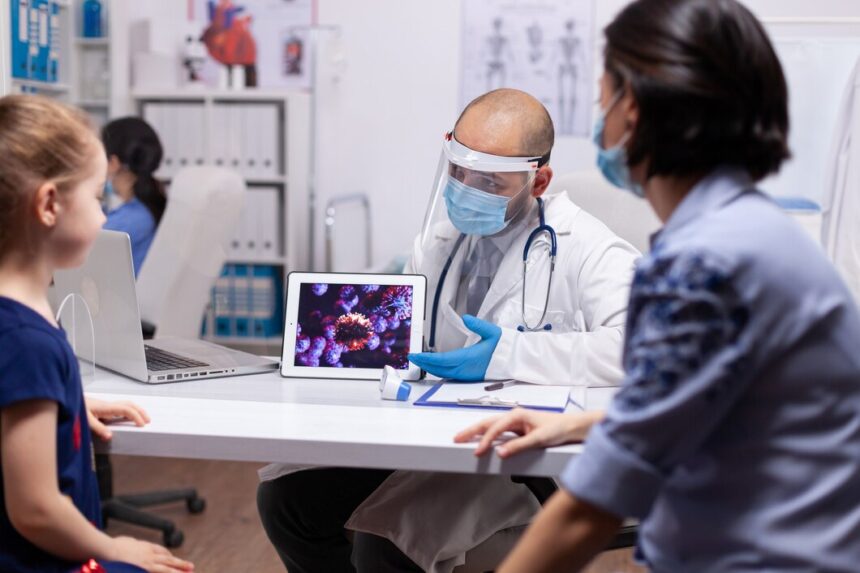Introduction:
The significance of early detection in preventing serious health conditions cannot be overstated. When health issues are identified in their initial stages, the chances of successful treatment and recovery are significantly improved. Medical research has consistently shown that many life-threatening conditions, including cancer, cardiovascular diseases, and diabetes, can be managed more effectively if they are detected early. Unfortunately, many individuals overlook the importance of regular health screenings, either due to a lack of awareness or because they underestimate the risks involved. This neglect can lead to the progression of otherwise treatable conditions, resulting in severe consequences for both the individual and the healthcare system.
Healthcare professionals have emphasized the importance of early detection as a crucial strategy in the fight against serious health conditions. By diagnosing diseases before they become symptomatic, individuals have a better chance of receiving timely and effective treatment. Furthermore, early detection can lead to more cost-effective healthcare, as it reduces the need for more invasive and expensive treatments that are often required in advanced stages of illness. Despite the clear benefits, many people still avoid or delay seeking medical attention, which underscores the need for increased public awareness and education on the critical role of early detection in maintaining good health.
The role of early detection in cancer prevention and treatment:
Early detection plays a pivotal role in the prevention and treatment of cancer. Cancer is a disease that, if left undiagnosed, can spread rapidly and become much more difficult to treat. Regular screenings such as mammograms, colonoscopies, and Pap smears are essential tools in identifying cancers at an early stage, often before symptoms appear. These screenings can detect abnormalities that may indicate the presence of cancer, allowing for early intervention. Early-stage cancers are typically less aggressive and more responsive to treatment, increasing the chances of a successful outcome and reducing the likelihood of cancer recurrence. Here’s a horrifying fact about cancer: medications like valsartan can lead to cancer. Yes, victims even started to file lawsuits, which are now referred to as valsartan cancer lawsuits.
The impact of early detection on cancer survival rates is profound. Studies have shown that patients whose cancer is detected early have significantly higher survival rates compared to those diagnosed at later stages. For instance, breast cancer patients diagnosed at stage one have a five-year survival rate of over 90%, whereas this rate drops significantly for those diagnosed at stage four. Early detection also offers the possibility of less invasive treatment options, such as localized surgery or targeted therapies, which can preserve the quality of life for patients. In contrast, cancers that are not detected until they have advanced may require more aggressive treatments, including chemotherapy and extensive surgery, which can have severe side effects and lead to prolonged recovery periods.
The Importance of Early Detection in Maintaining Skin Health:
“Skin health is often overlooked in discussions of early detection, yet it plays a crucial role in overall well-being. Skin conditions such as melanoma, a serious form of skin cancer, are highly treatable when detected early. Regular skin checks, both self-examinations and professional assessments, are essential for identifying suspicious moles or changes in the skin that could indicate the early stages of cancer. Early detection of skin conditions allows for timely interventions, which can prevent the spread of cancer and reduce the need for more invasive treatments.
Beyond cancer, early detection of other skin issues, such as eczema, psoriasis, and acne, can also significantly impact a person’s quality of life. Identifying and addressing these conditions early can prevent them from worsening and help manage symptoms more effectively. For instance, early treatment of eczema can prevent severe flare-ups that cause discomfort and lead to secondary infections. Similarly, addressing acne early can reduce the risk of scarring and the psychological impact associated with severe cases. By prioritizing early detection in skin health, individuals can maintain a healthier, more vibrant appearance and reduce the risk of long-term complications.” – Dr. Darren Smith, Founder at Darren Smith Md
The impact of early detection on managing diabetes and its complications:
Diabetes is a chronic condition that can lead to serious health complications if not managed properly. Early detection of diabetes or pre-diabetes allows for timely interventions that can prevent the progression of the disease and the development of complications such as kidney failure, blindness, and neuropathy. Regular screenings, particularly for individuals with risk factors such as obesity, family history, or a sedentary lifestyle, are essential in identifying diabetes early. Early detection enables healthcare providers to implement treatment plans that include lifestyle changes, blood sugar monitoring, and medications that can help manage the condition effectively.
The complications of diabetes are often debilitating and can significantly reduce the quality of life for those affected. Early detection and management of diabetes can prevent or delay the onset of these complications, thereby improving patient outcomes. For instance, maintaining blood sugar levels within a target range can prevent or slow the progression of diabetic retinopathy, a leading cause of blindness in adults. Similarly, early intervention in the management of blood pressure and cholesterol in diabetic patients can prevent cardiovascular complications, which are common among those with diabetes. By addressing diabetes early, healthcare systems can also reduce the long-term costs associated with treating the complications of the disease.
The Role of Early Detection in Managing Medication Side Effects:
“Managing medication side effects is an essential aspect of maintaining overall health, particularly for individuals with chronic conditions. Early detection of adverse reactions to medications can prevent serious complications and improve the effectiveness of treatment plans. Regular monitoring of how the body responds to new medications, including over-the-counter and prescription drugs, allows healthcare providers to make timely adjustments. This proactive approach can help minimize discomfort, prevent the worsening of side effects, and ensure that medications provide the intended benefits without compromising other aspects of health.
For those who rely on multiple medications, the importance of early detection of side effects becomes even more critical. Polypharmacy, or the use of several medications simultaneously, increases the risk of drug interactions that can lead to unexpected health issues. Regular check-ups and communication with healthcare providers about any new or worsening symptoms are key to identifying potential problems early. By focusing on early detection in managing medication side effects, individuals can achieve better health outcomes and avoid the pitfalls of untreated adverse reactions, ensuring a safer and more effective use of their medications.” – Tiffany Payne, Head of Content at PharmacyOnline.co.uk
The role of technology in enhancing early detection of health conditions:
“Advances in technology have significantly enhanced the ability to detect health conditions early. Innovations such as wearable devices, telemedicine, and artificial intelligence (AI) have made it easier to monitor health and detect potential issues before they become serious. Wearable devices can track vital signs such as heart rate, blood pressure, and sleep patterns, providing real-time data that can alert individuals and healthcare providers to potential problems. Telemedicine allows for remote consultations, making it easier for individuals to access healthcare services and receive early diagnoses without the need to visit a clinic or hospital.
Artificial intelligence and machine learning are also playing an increasingly important role in early detection. AI algorithms can analyze large datasets from electronic health records, imaging studies, and other sources to identify patterns and predict the likelihood of certain health conditions. For example, AI has been used to improve the accuracy of cancer screenings by detecting subtle changes in imaging that may be missed by the human eye. These technological advancements not only improve the accuracy and efficiency of early detection but also make healthcare more accessible to a broader population, ultimately contributing to better health outcomes.” – Justin Carpenter, franchise owner of Nashville Maids
Conclusion:
Early detection is a powerful tool in the prevention and management of serious health conditions. By identifying diseases and risk factors at an early stage, individuals have a better chance of receiving effective treatment and improving their overall health outcomes. The role of early detection in cancer, cardiovascular diseases, diabetes, mental health, and other conditions has been well-documented, demonstrating its critical importance in reducing the burden of disease on individuals and healthcare systems. As technology continues to advance, the potential for even earlier and more accurate detection of health conditions will likely increase, offering new opportunities to improve public health. Encouraging regular health screenings and increasing public awareness about the importance of early detection are essential steps in the ongoing effort to prevent and manage serious health conditions effectively. What steps will you take to ensure that you prioritize early detection in your health care routine?
Also Read: Maintain a Healthy Lawn with Professional Pest Spraying in Nova





